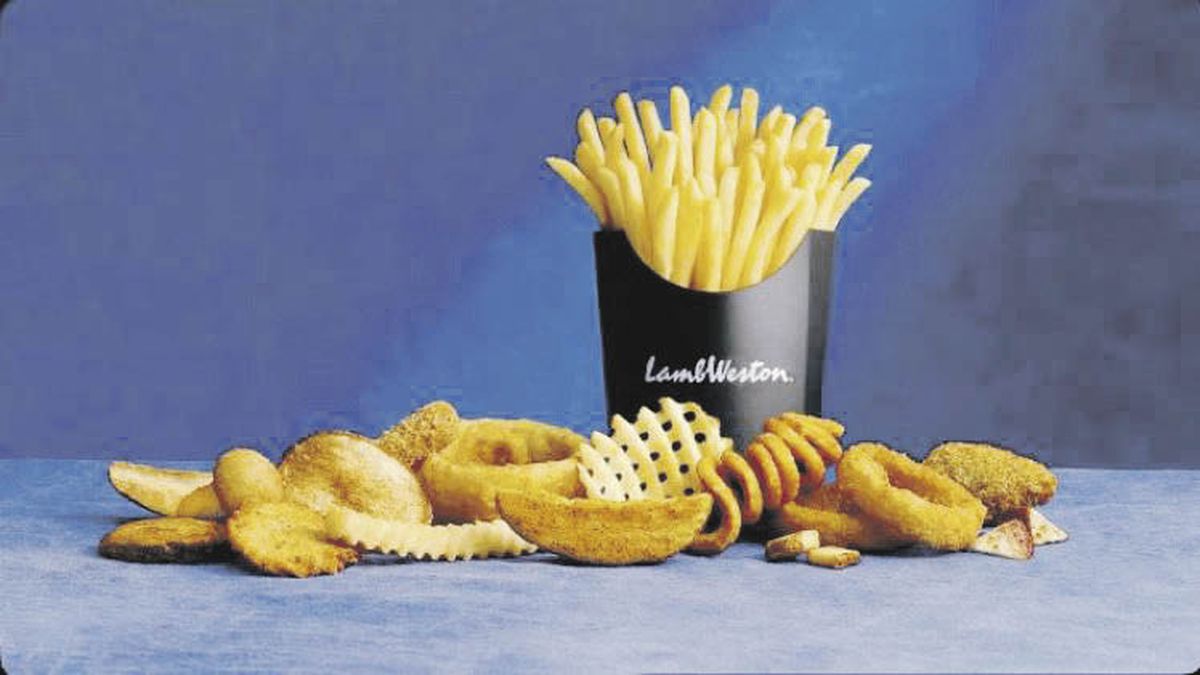Lamb Weston is a multinational leader in the global market of frozen frieswith headquarters in Idaho, United States, and presence in more than 100 countries, including Argentina. It has more than 10,000 employees around the world.
While they light up some warning lights from Wall Street, The firm has just reaffirmed its investment decisions in Argentina, by acquiring a remaining portion of shares that were in the hands of the Argentine group Silver Commercial Society and thus taking full control of your operations.
The American firm paid US$11.2 million to SCP for the 10% of shares it held in the company. In 2019 it had acquired 50% of the share package, which then increased to 90% in 2022. And this Friday the transfer operation was completed.
“After this operation, Lamb Weston modern foods will continue to operate as usual and all current contracts and obligations with partners, customers, suppliers and employees will remain fully intact. “This ensures that all business relationships will continue in the same manner, with no disruption to operations,” Lamb Weston clarified in a statement.
The company has a plant in Argentina in Munro, province of Buenos Aires, where it produces frozen French fries, sweet potatoes, snacks and vegetable products for restaurants and retailers.
In addition, the construction of another factory is underway in the Mar del Plata industrial park that It will be operational between April and May 2025 and which required an investment of US$240 million.
80% of the production from this plant will be sent by ship to international markets where Lamb Weston has a presence.
As previously announced, it will have a production capacity of 120,000 tons of frozen pre-fried potatoes, 4,200 tons of mashed flakes and 1,750 tons of potato starch per year.
SCP’s departure from the company also involves Morixe, the flour mill that was purchased by this company in October of last year.
Morixe and Lamb Weston agreed to terminate the existing commercial contracts and thus the Argentine firm led by businessman Ignacio Noel withdraws from the frozen pre-fried potato market for a period of one year in exchange for receiving a payment of US$13 million. .
The agreement implies early termination of commercial and supply contracts existing between both companies, and additionally the granting of licenses by Morixe in favor of Lamb Weston Argentina for the use of the “Rapipap” and “Morixe” brands for a period of one year, exclusively for the marketing of pre-fried potatoes frozen.
JPMorgan’s warnings to Wall Street investors
Lamb Weston’s manufacturing operations are concentrated in the northwest region of the Pacific Ocean, more specifically in the Columbia River Basin, an area that is considered the best potato chip producing region in the world.
Although its description results in an image of a powerful and armored company against the ups and downs of the world economy, the investment bank JP Morgan issued a stock price alert today, Monday of Lamb Weston, on the New York Stock Exchange, where it is listed under its acronym LW.
The influential bank downgraded the stock’s recommendation from the “overweight” category and moved it to “neutral”. Although the initial reaction of investors was not adverse (the shares still rose $5 at the beginning of the day), the report raised some concerns about the prospects for the business.
This analysis came shortly after the company’s mixed operating results for the first quarter of fiscal 2025 were known, where it exhibited a slight decrease of 1% in total sales year-over-year, although it exceeded initial expectations due to an improvement in volume and the price mix.
Added to this is the recent announcement about the implementation of a restructuring plan to improve operational efficiency, including a 4% reduction in the global workforce that would represent a cut of 400 people. It also announced the closure of its facility in Connell, Washington.
In a JPMorgan report, it was highlighted as a factor of concern the slow evolution of demand for frozen French fries and other products of the firm in restaurantsespecially in Europe. In the case of “fast food” chains in the US, improvements are noted, but the bank described them as “marginal.”
“The observed growth is mainly due to heavy discounting by major fast food chains rather than a genuine increase in year-on-year growth,” he explains.
It also takes as a second factor of uncertainty the slow recovery in consumer confidence and spending indices, whose evolution is “difficult to predict.”
The third concern relates to the supply and demand dynamics within that segment of the food industry. JP Morgan says that although consumer demand begins to increase, There is no certainty that it can do so at the pace of global supply, which will grow by 5% in the next two to three yearsas he estimated.
“This imbalance could potentially exacerbate the current situation, leading to a more challenging environment for Lamb Weston in the future,” maintains JPMorgan’s evaluation of Lamb Weston shares, cited by the specialized media Investing.com.
Adjusted EBITDA for the quarter under analysis was US$290 million, lower than the previous year due to higher manufacturing costs and a product recall that impacted gross profit by approximately US$39 million.
The stock’s performance over the past three months reflects market uncertainty, with a price drop of 15.93%. This volatility is consistent with JPMorgan’s observations about challenges in demand forecasting and the industry’s supply-demand dynamics, experts say.
Source: Ambito
David William is a talented author who has made a name for himself in the world of writing. He is a professional author who writes on a wide range of topics, from general interest to opinion news. David is currently working as a writer at 24 hours worlds where he brings his unique perspective and in-depth research to his articles, making them both informative and engaging.




